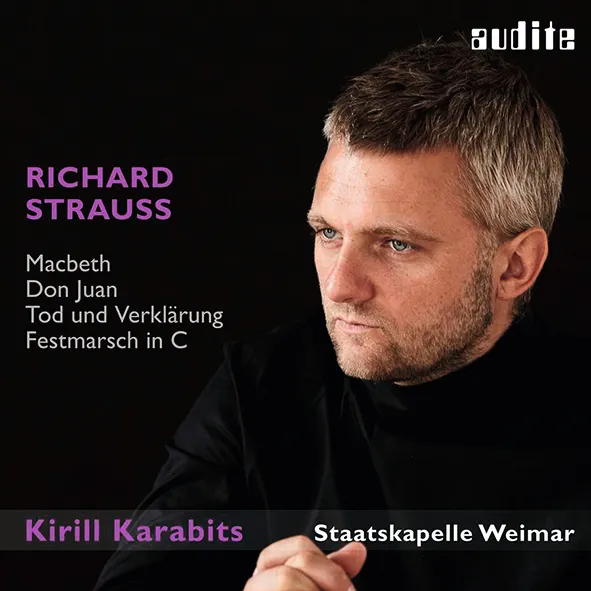
R Strauss Macbeth; Don Juan; Tod und Verklärung; Festmarsch Staatskapelle Weimar/Kirill Karabits Audite 97.755 70:35 mins
In theory, it was a good idea to show the current shape of Weimar’s former Court, now State Orchestra, a fertile training ground for the young Richard Strauss as conductor and composer, in scores premiered either in its home town or neighbouring Eisenach (the exception is the Festmarsch from the same time, dubiously born in his home city of Munich). The problem is bothering with what is chronologically the first of the tone-poem sequence, Macbeth – brass-heavy (albeit with the introduction of a bass trumpet), incoherent and very tangential to its subject-matter. The sophistication of the Weimar players under Kirill Karabits tones down the worst excesses, and textures are admirably clear, in fine sound, throughout the recording. But does it deserve yet another recording? I’d say not.
The Festmarsch is similarly banal, a good deal shorter and more of a rarity – very odd to hear its C major coming out of what here is quite a spiritual transfiguration in Tod und Verklärung. Karabits and his orchestra take a long time to flame, namely through three-quarters of a far from fiery Don Juan, where the crucial oboe solo is outshone by the clarinet towards the end of that exquisite love-scene. But when the sparks fly, which they do, fully, for the first time in the sick-bed agonies of the dying man, there’s one performance here to set up there with the best. The memories of youth are beautifully gauzy, too. Otherwise not in the same league as the Staatskapelle Weimar’s other Strauss recordings with Antoni Wit.
David Nice